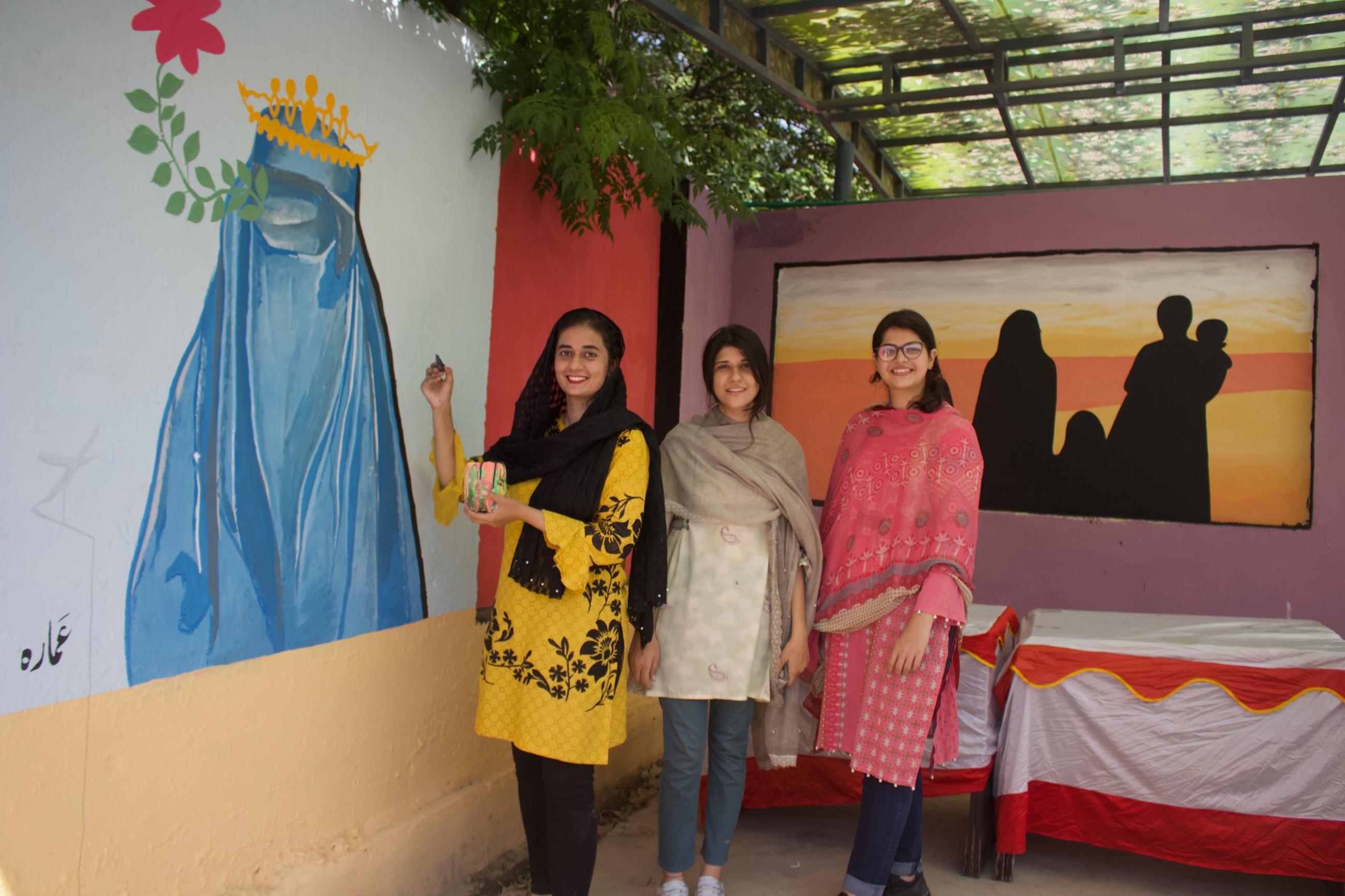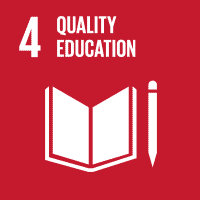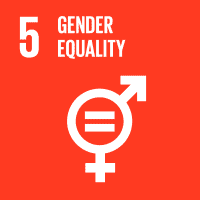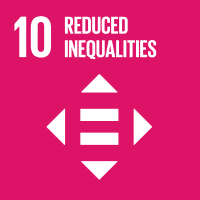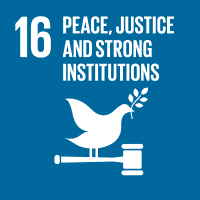The Social Support for Vulnerable Afghan Refugees and Host Communities project develops low-threshold psychosocial support services. In doing so, it promotes social cohesion between the individual groups in the communities. There is a particular focus on women and adolescent girls and boys. GIZ has been commissioned to carry out this work by the German Federal Ministry for Economic Cooperation and Development (BMZ). The Chief Commissionerate for Afghan Refugees in the province of Khyber Pakhtunkhwa provides support as a local partner.
Building a sense of community
Pakistani households have been living next to Afghan refugee families in the north of Pakistan for decades, without either side mixing with the other. By providing safe spaces to meet, for women in particular, GIZ is bringing both sets of neighbours together.
A construction cabin represents a ray of hope for the women in the district of Nowshera. Here in the province of Khyber Pakhtunkhwa in the north of Pakistan, they are sitting closely together around tables in teams of two, making remote-controlled cars. The metal walls are clad in wood-effect panelling. The whirring fans that hang from them struggle to move the air enough to provide even a touch of cooling.
But despite the oppressive heat, the women seem barely to notice any of this. They are focused on cables, circuit boards and small rubber tyres, handing each other screwdrivers and soldering irons, and busily discussing where they would like to attach the batteries that will drive the models they are assembling as part of their technology course. These little cars represent a bit of independence and greater self-confidence. And that is precisely what these women want for themselves – and their daughters.
Safe spaces for meeting
Here in this stuffy container, women from Afghanistan and Pakistan have found a safe space. The simple car they are working on together is quite literally a vehicle: the participants practice using tools in robotics courses, giving them the skills to repair small electronic items such as headphones and watches at home. This teaches them to have a bit of confidence in themselves. Even more importantly, they get to know one another.
Since 2019, the Deutsche Gesellschaft für Internationale Zusammenarbeit (GIZ) GmbH has been providing this form of support to Afghan refugees and members of their host communities. As a general rule, both sets of participants are equally represented in these courses, with half coming from Pakistan and the other half from Afghanistan.
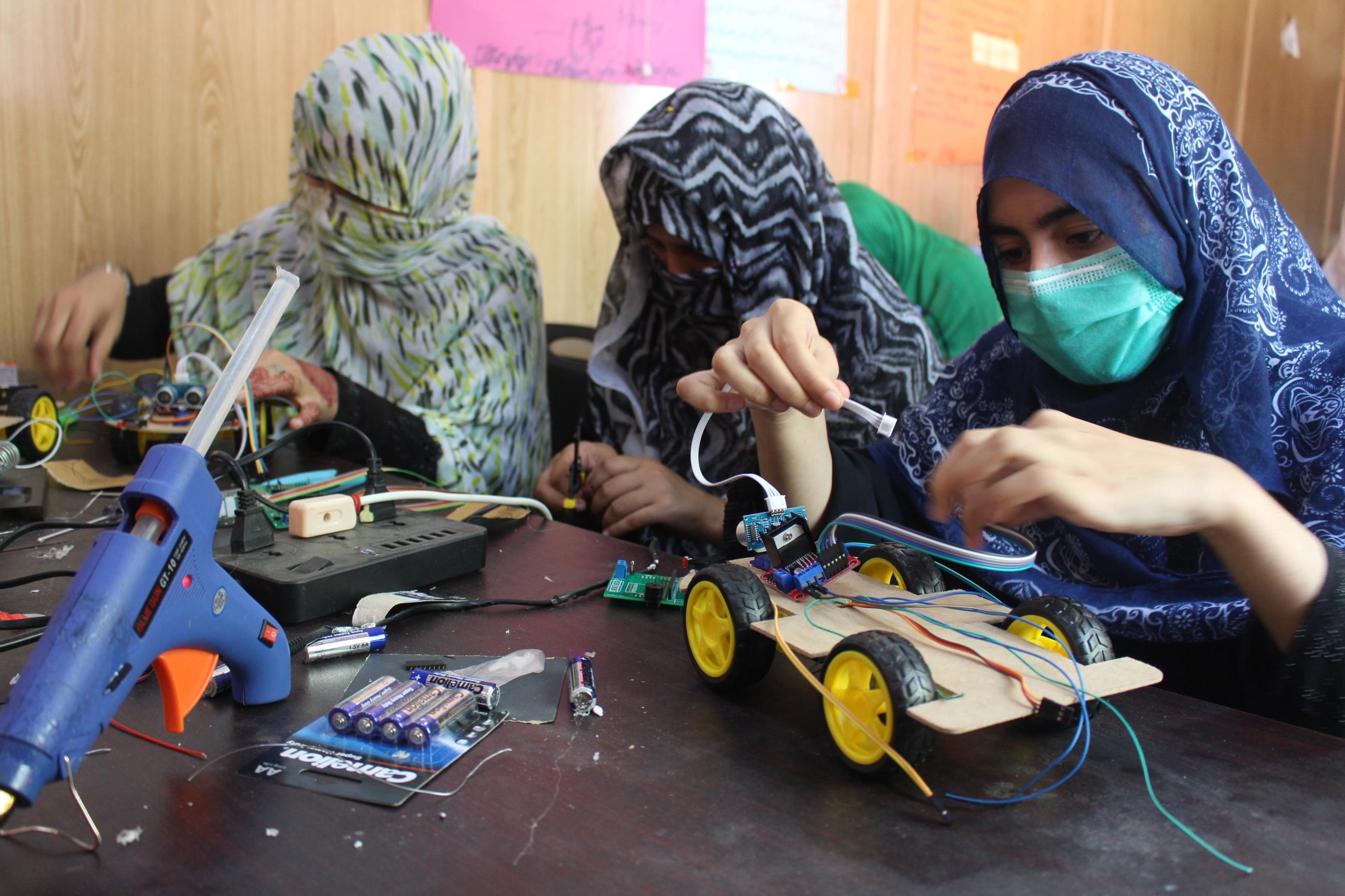
Pakistan has hosted the highest number of Afghans globally for almost 40 years. Despite this, the refugees from the neighbouring country and the people living in the host communities did not mix at all with each other for a long time. More than half of all refugees from Afghanistan live in the province of Khyber Pakhtunkhwa. Around one third of these, often already second or third-generation refugees, live in dedicated refugee villages and the remaining two thirds in various host communities and cities.
Pakistan is struggling with a weak economy, and its social security systems are overstretched. This is leading to tension, as refugees are perceived as competing. Existential worries exacerbate fear, stress and depression. Experiences of violence and trauma act like an accelerant. Children, adolescents, women and girls are particularly affected.
Just one street separates the refugee village from the community of Akora Khattak in the district of Nowshera, yet the residents did not know each other. Instead of reaching out to each other, there was apprehension and a sense of distrust.
Psychosocial support for many
Kiran gets to her feet as she explains why she crossed the road to the Afghan women in her neighbourhood this afternoon. The 28-year-old Pakistani from Akora Khattak appears full of determination. She understands that the robotics course is not just about building a remote-controlled car, but also a sense of community. She has already attended other courses, including one in which she learned how to recognise and deal with stress in herself and others: ‘That was the first time I’d heard about gender-based violence.’
Kiran now shares her knowledge with other women: ‘I put myself forward for the local elections and was elected. It’s important to get information to other women. Not just about violence and the support available but all kinds of different things.’ The courses have encouraged her to give other women a voice. In the courses, experts and non-experts alike learn how to better respond to the psychosocial needs of both the refugees and the Pakistani population.
GIZ has provided training on psychosocial support in the communities to almost 1,400 people to date, a good half of these women. The topics covered are varied and include conflict resolution, stress management, dealing with aggression and non-violent communication. GIZ has raised awareness of mental health, gender-based violence and menstrual health in more than 1,000 events, thereby reaching around 15,600 people, some 80 per cent of them women.
Heidi Herrmann manages the project at GIZ. She firmly believes that bringing people together is the key: ‘True friendships have been formed through this. The women visit each other and invite each other over.’ GIZ is creating safe spaces in which community members can meet and exchange views. ‘Women learn through role play to support each other using simple methods,’ says Herrmann.
Wall makeover courtesy of art students
GIZ has set up five such meeting places in the north of Pakistan, including this one in the district of Nowshera. Although people of all genders are welcome to use it, the separate area in which the construction cabin is sited is reserved for female participants. Three students, Husna, Omama and Ammarah, have painted the cabin walls.
The young women from Pakistan worked together with Afghan women to design the motifs, including one of a veiled woman. ‘They’ve left their homeland behind, but not their culture,’ Ammarah explains. She and her friends are dressed in modern clothing; skinny jeans can be seen below the kameez, the traditional Pakistani tunic. The image of the veiled Afghan woman expresses pride: ‘Women are strong.’
